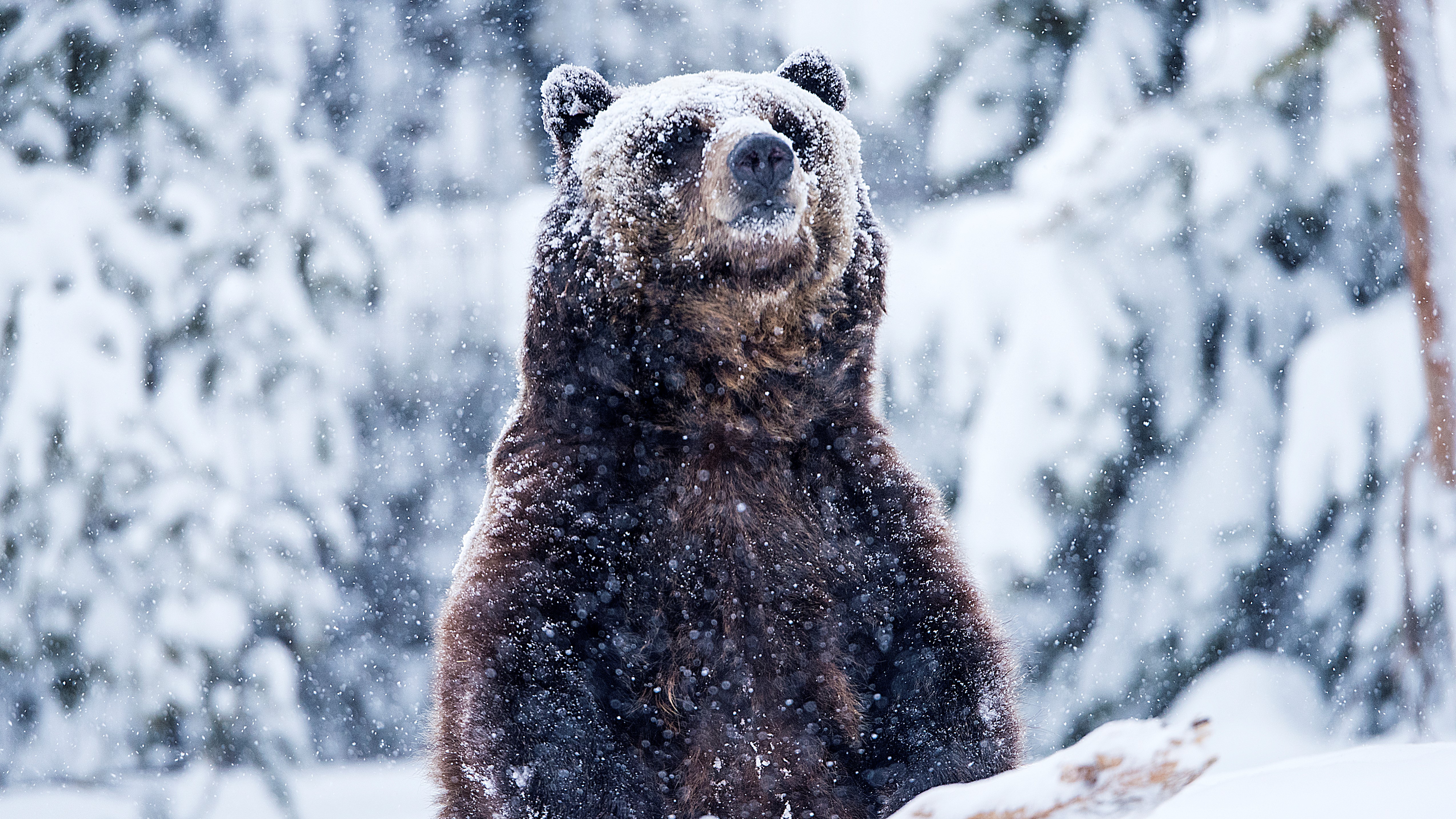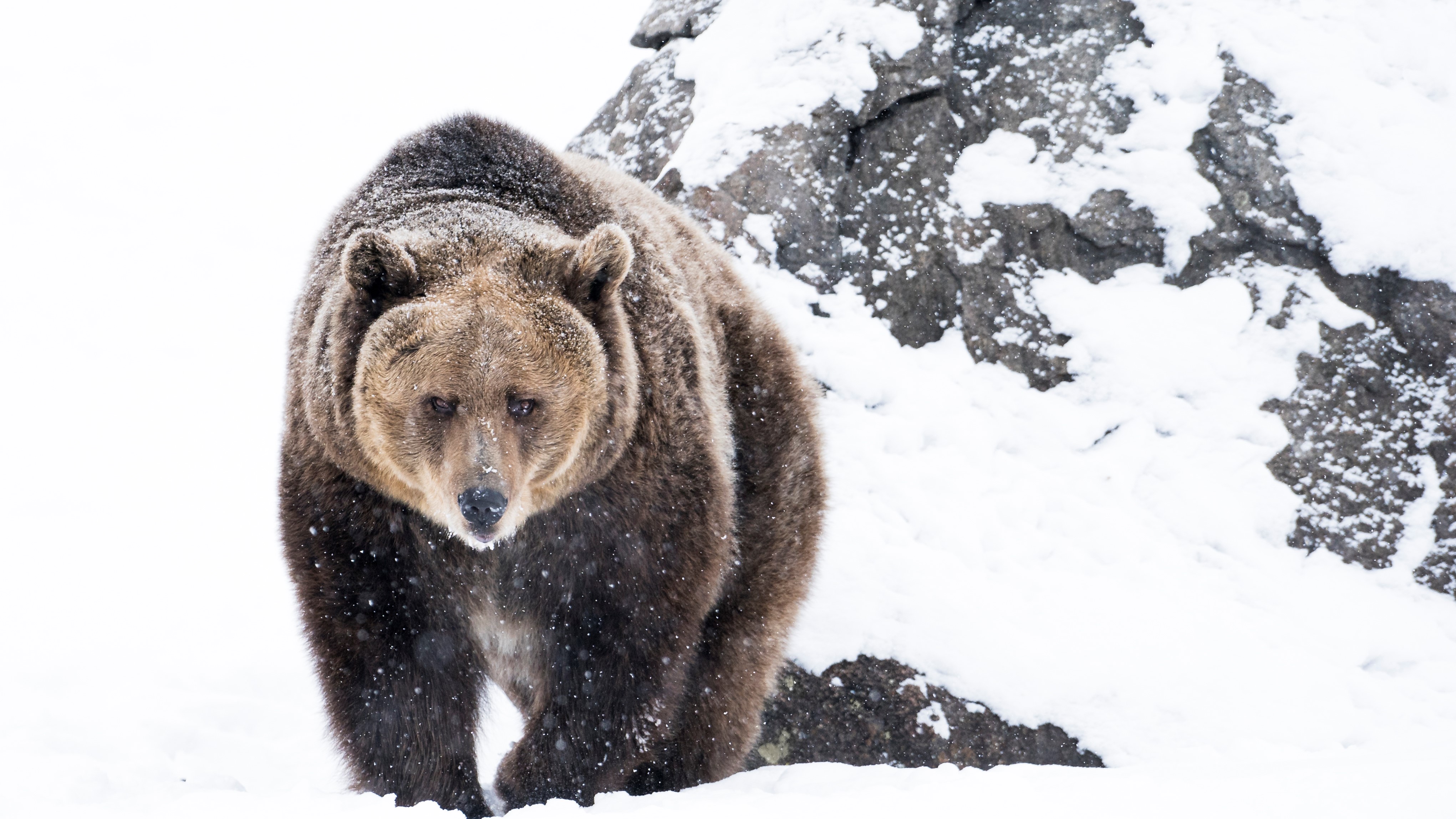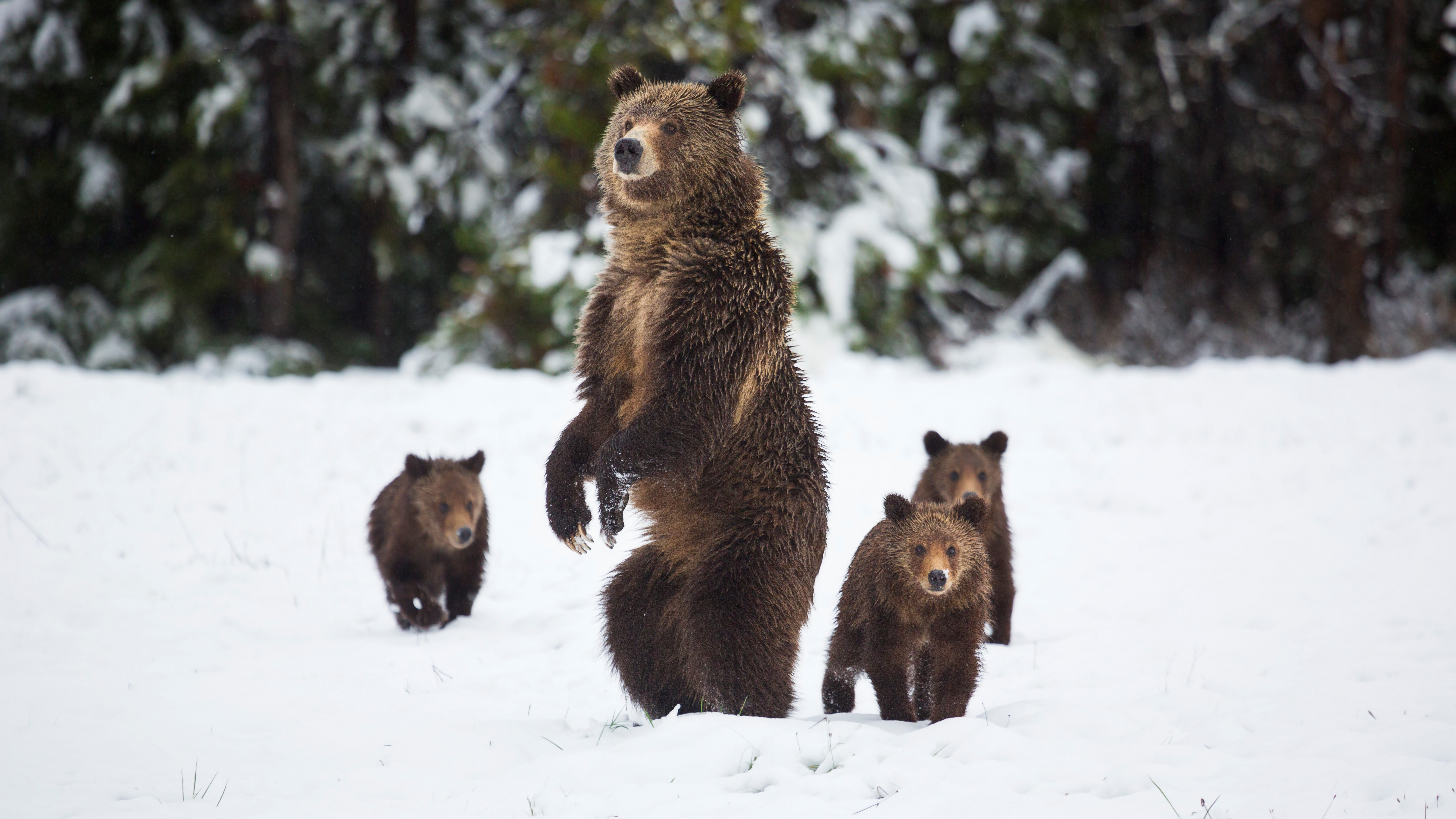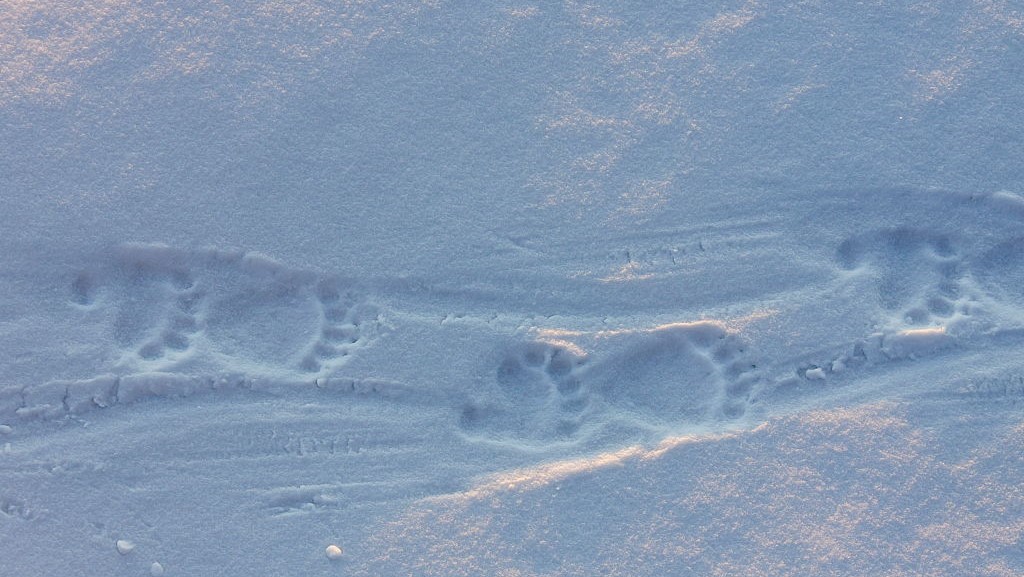Do you still need to worry about bears in winter?
Do you still need to worry about bears in winter? We explain what bears are actually doing in winter, why bears come out in cold weather, and how you can lower your risks of an encounter

For those of us who live in bear country, bear safety is commonplace. Lock your car, carry bear spray when you’re hiking and secure your food in a bear canister or bear bag when you’re camping. But when winter arrives, bear sightings recede and most of us are under the impression that we no longer need to worry about keeping ourselves safe from bears (and our bears safe from us). After all, we all learned that bears hustle off to their dens for a long snooze when it’s snowy.
But every so often, a video circulates of a skier being chased downhill by a bear, and it makes you wonder, can bears come out in the winter? And do you still need to worry about bears in winter? We had the same questions as you, so we decided to take a closer look into what bears are actually doing while we’re skiing and snowshoeing.

Can bears come out in the winter?
It’s commonly believed that bears hibernate in winter, meaning they hole up in a den – usually a hollow tree or rock cave – and sleep for many months. It turns out, however, that bears aren’t strictly hibernators after all. Rather, bears go into a state of torpor, which means that they lower their heart rate, breathing rate and body temperature in order to go into a deep, prolonged sleep where they don’t need to eat, urinate or defecate.
But isn’t that just hibernation? According to Science World, the main difference is that during torpor, a bear can in fact wake up to take care of certain business – in the case of bears, that means defending themselves from attack, giving birth (which they do around two months into torpor), and sniffing out food.
It’s that latter activity – detecting food – that’s perhaps the most important point here. The whole reason that bears go into torpor is due to the typical lack of food availability. In a natural environment, black bears feed on grasses, insects, small mammals and fish while grizzly bears add larger game to that menu. Come winter, particularly in snowy areas such as Alaska, Montana, Wyoming and Colorado, much of that food is either hibernating itself, or covered up by feet of snow or a thick layer of ice. Therefore, bears slow their metabolism way down so they can last until the spring, when they fatten themselves up again. But if food is still available, bears will come out in winter, either because they wake up or don’t go to sleep in the first place. This is why unseasonably warm or low-snow winters will bring more bear sightings, and also why bears stay active where there’s access to human food and trash available.
There’s another reason why bears might come out in winter, and that’s because typical torpor lasts for different amounts of time, depending on where you are. Up in Alaska, bears snooze for about seven months out of the year, whereas in Colorado, sleepytime lasts for about five months and in North Carolina it can last as little as three months, which means bear emergence can certainly overlap with ski season and snowshoeing adventures in certain places.

Do bears attack during hibernation?
If a bear wakes up after a two-month nap and decides to head out of its den, you might be thinking it will be extra hungry and in search of a tasty-looking winter sports enthusiast for breakfast. When you’re traveling over snow on skis or snowshoes, you’d be completely unaware of passing by a sleeping bear, tucked away safely. But if your movement awakens the bear, would it attack? After all, most black bear attacks occur because they feel threatened (grizzlies and polar bears, on the other hand, might just be hungry) or because they’re protecting their cubs, which if you’ve been paying attention you’ll have noticed are born during torpor time. So do you need to worry about bear attacks in winter?
Advnture Newsletter
All the latest inspiration, tips and guides to help you plan your next Advnture!
Of course, bear attacks are unusual at any time of year, though winter attacks do happen. In February 2021, three skiers unwittingly disturbed a bear den while on a backcountry ski trip up in Haines, Alaska. The bear attacked one of the skiers, leaving him with a broken arm, and it’s suspected that she was protecting her cub. So yes, it is technically possible that you could unknowingly stir a sleeping bear in winter and said bear could attack you, but it would be very, very rare.

Do you still need to worry about bears in winter?
The short answer is, no, not as much as you need to worry about things like frostbite, hypothermia or falling through ice. It’s not impossible that you’ll have a bear encounter in winter, and if you’re worried about it you can still carry bear spray – just carry it close to your body so it doesn’t freeze. What we can all do to minimize bear encounters in winter is be responsible with our food waste, since bears won’t sleep if there’s a steady supply of food, and take better care of the planet to slow global warming.
- Best hiking boots: warm and comfortable footwear for all conditions
Julia Clarke is a staff writer for Advnture.com and the author of the book Restorative Yoga for Beginners. She loves to explore mountains on foot, bike, skis and belay and then recover on the the yoga mat. Julia graduated with a degree in journalism in 2004 and spent eight years working as a radio presenter in Kansas City, Vermont, Boston and New York City before discovering the joys of the Rocky Mountains. She then detoured west to Colorado and enjoyed 11 years teaching yoga in Vail before returning to her hometown of Glasgow, Scotland in 2020 to focus on family and writing.

